I like inconvenience. I like having to reflect on what I’m feeling and why I’m feeling that way. I especially like doing that reflection in a dark room with other people who are also feeling things and having to think about it. Maybe that’s what draws me to comedy – to “alt” comedy, in particular; it’s more social than therapy and it’s livelier than meditation. And oh yeah, it’s the best (and often cheapest) form of entertainment around.
I went to Bridgetown Comedy Festival this year with a question in my head about social justice. For a long time, I’ve had this idea that comedy was connected with that world – the world of Social Justice – in a bigger way than just: “It makes people feel good.” Who cares. People feel good when they take baths or smile politely at tourists. What I mean is that I think comedy can make the world better by changing people’s minds about the way the world works. Fortunately, one of the most respected comedians of all time backs me up on this one. George Carlin, in his autobiography Last Words states:
“No one is ever more herself or himself than when they really laugh. Their defenses are down … They are completely open, completely themselves when that message hits the brain and the laugh begins. That’s when new ideas can be implanted.”
So when I heard that one of my favorite alternative comedians, Baron Vaughn, was hosting two all-black showcases called The New Negroes, I was intrigued. Why call it that? Why call it that at a festival in Portland? Who are these awful white hipsters I have to sit in the audience with at an all-black comedy show? Ugh! (Inconvenience! I liked it.)
Let me take a quick step back to say a little about who I am. (This is a thing I was taught to do as an Anthropology major at a small mostly-white women’s college in upstate New York. YES! Two birds with one stone!) After college, I moved to New York City and a couple years after that, I joined the Peace Corps. I then moved back to New York, which is where I am now – most recently, the Park Slope section of Brooklyn. If you don’t know – and if you’re reading this, you probably do – Park Slope is a place known for its owl décor, baby-friendly pub atmospheres, grass-fed mattress boutiques, artisan Ryan Gosling supply stores, and highfalutin spellings of words like “bagel”. (Blergh, #amirite?) The most astounding thing I learned about this place after moving here was how, amidst the hyperbolic hipsterism surrounding me at every street corner and oozing from every grossly ironic (#basic) word I delighted in overhearing, there was a powerful and disturbing sense of identification with that living, breathing…human standing before me. Yes, ladies and gentlemen, I am living amongst humans. The stupid things they buy are the same stupid things I’d think about buying. The completely absurd things they say are the same things my friends and I “pretend” to say. Here’s one now: Welcome to revelation station. So that’s me – white and uncomfortably aware and painfully self-referential. Hi, how are you? Now back to Bridgetown:
I went to find out – to investigate, even – social justice at this comedy festival. I wrote to Andy Wood, one of the festival’s producers and a comic himself, about this year’s social justice “theme” (as I put it). He put it this way:
‘Advancing social justice’ sounds like we’re all about to take up arms and storm a castle or something … I think the power of comedy is a much more subtle prodding than a declaration of war.
Fair enough. Maybe the power of comedy was more Gandhian than I had assessed. After all, brute force isn’t likely to generate big chuckles (let alone applause) from anyone who isn’t a masochist — especially without a safe word.
I ended up on the same flight as Hari Kondabolu, a writer and correspondent for Totally Biased with W. Kamau Bell, who went on NPR recently and discussed his former role as a community organizer for immigrant rights in Seattle. Although Hari viewed comedy as a peripheral hobby, social justice played a prominent role in his comedic material and led him, for example, to read directly from the U.S. citizenship application as a means of educating his audience and enlightening those who weren’t aware to the absurd yet despotic process immigrants go through to become American. As a comic of color (color comic?), Hari laments the evident lack of range among the roles for which he is told he’d be “perfect” – often a dreary stereotype. Although he cheerfully anticipates writing roles more aptly suited to his talents (“cool” sociology professor in Vermont, lefty activist father of impish daughters Gloria Steinem and bell hooks Kondabolu, Poohland mutant), he admits that “it would be nice” if others in the industry would help pick up the slack. For comics of color, he says, it’s about having a chance to “be human and show a range.” After all, comics like Hari didn’t go all the way to the London School of Economics to get graduate degrees in Human Rights just to play the role of a minimum-wage deli clerk, right?
Hari’s interview left me mulling over the possibility of comedy as a more direct social justice intervention. Intentional that his style is with regard to delivering an impactful message for social awareness, Hari still claims that he doesn’t see himself as an activist. In fact, given his passion for immigrant rights, Hari says that he is still learning to feel comfortable with his decision to commit full-time to comedy. At the same time – and being careful to stay humble – he recognizes that his current work is making a positive difference.
Maybe this wouldn’t be a worthless article, after all…
On the opening night of Bridgetown, I decided to catch The New Negroes show, featuring eight comics – among them local favorite Nathan Brannon (named among Portland’s “Top 5 Funniest” by Willamette Week), Kimberly Clark, a guest on Lopez Tonight in 2011 before it went off the air and who notably brought back the word “wigger” during her set, and Curtis Cook, a comic originally from Cleveland who has been living in Portland for just over a year.
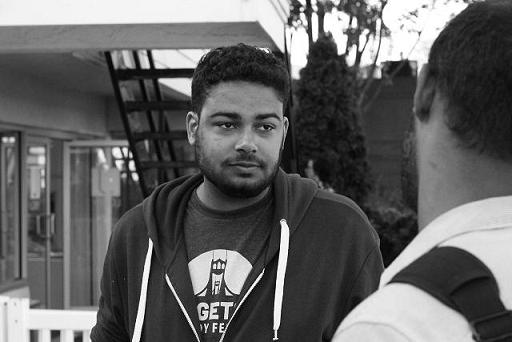
Curtis was one of the last comics to go up. I was pretty tired at that point and getting lazy with my notes. I remember that his whole set was solid, the audience was responding and his racial jokes were crisp. As he finished up a joke about child murder with the crowd roaring, he added quickly, “People who laugh at that joke are either laughing because they don’t care, or because they’re pretending to care,” and as the momentum of laughter was carrying him off stage: “Thanks for moving to black people’s houses! Goodnight!” I was stunned, and also pretty sure the majority of the audience had not really caught the last remarks. Was this a kind of comedy I’d just never noticed before? A kind that intentionally made the audience feel like total jerks by tricking them into laughing at something they wouldn’t consciously want to? Interesting.
Surely, the topic of gentrification was not anywhere off-limits. As Andy had told me how he feels the city of Portland is portrayed on the show Portlandia, to “take Portland to task for its whiteness or for issues like gentrification” is “completely fair game,” especially since much of the lampooning “comes from a place of love … We shouldn’t just sweep those things under the rug.”
What had thrown me off was not the subject-matter, but rather what I read as a mixed message from the performer. If, as Baron would tell me later, comedy is a shared art form – with both the performer and the audience as active participants – then what had been the audience’s role in that last joke? Or, had I merely witnessed a rare moment when a comedian just stops performing despite still being on stage?
After the show, I caught up with Ope, a comedian who had hosted an earlier show I attended at Analog Café, and another LA comic, Ben Bizuneh, to see what they thought. Ope had definitely caught Curtis’s parting comments and had a reaction similar to my own. He agreed with me that a lot of the audience probably didn’t catch it at all.
Later on, I brought up the performance with a non-comedian who said she was familiar with Curtis’s style and thought he was probably just trying to cause a little lighthearted trouble. A comic sitting nearby suggested I was giving Curtis “too much credit,” explaining that sometimes comedians just go for a reaction without thinking too much about where it comes from. “Yeah,” I responded, “but I’d rather assume the effect was intentional.”
The next day was disgusting and rainy. From having lived in Portland for a few months a couple years before, I knew a little about this weather. But I also knew that carrying an umbrella around was like wearing camouflage in Park Slope. Simply. Not. Done. So I used the Gore-Tex rain jacket I had brought with me to Peace Corps and patted myself on the back for so seamlessly negotiating cultural divides with rain gear.
I showed up to the White Owl for the second night of Baron’s showcase and caught a seat in the front corner by the bar so I had a clear view of the stage as well as the audience…and also so I could get the bartender to charge my phone during the performance. The only performer whose name I recognized was the headliner W. Kamau Bell, whose now-cancelled political satire show Totally Biased I’d had a chance to see just six months before. It turned out to be a fantastic show.
Motor City native Karinda Dobbins, Windy City-based Rebecca O’Neal, and Opeyemi (Ope) Olagbaju were among the awesomely talented comedians to go up before the headliner. As soon as Kamau took the stage, with a comforting voice and a regretful tone he guided the audience’s attention to the banner displayed proudly behind him, bearing one of the Bridgetown sponsor’s logos, the face of a chimpanzee. I simultaneously laughed and uttered (maybe sputtered), “Oy veh” as I glanced around to see the other audience members’ reactions. Kamau spent the next 10 minutes in the corner of the stage, intermittently pleading with the audience not to take pictures of him, lest his still-living mother see him standing in front of the monkey image on Facebook. Oy veh. What an oversight.
I caught up with Baron the next day to talk more about the New Negroes showcase, which I had since learned was the name of a publication that was said to have begun the Harlem Renaissance. His blurb about the show and Allison Hallett’s Portland Mercury article describe his desire to provide Bridgetown audiences with a showcase with “range” – not only of black comedy, but also of blackness. How did he think it was different to offer the showcase of black comics as compared with just having all the same comics participate in Bridgetown in a non black-specific way? Vaughn told me he thought it was important that the audience “take note” of race – and, echoing the sentiment Andy had expressed in his email a few days before — that not calling direct attention to race left it vulnerable to being “swept under the rug.”
“Racism is like white noise,” Baron told me. “It’s part of everything … neutral.”
People not-of-color don’t see racism unless it is named directly where it is a constant fact of life for people of color. So what’s to be done? Continuing to name race keeps it entrenched as a social fact and perpetuates it as a powerful but abused and ill-understood construct. However, doing away with racial language only forces racism into hiding and makes it all the more difficult to identify and disentangle the roots of social injustice.
W. Kamau Bell, referencing Cameron Esposito’s recent article in a conversation the following day, told me “it would be nice” to just go up and do comedy without having to talk about identity, but (referring back to the situation with the chimpanzee banner) the fact that it was an all-black show in front of a mostly-white audience and none of the previous eight comedians had mentioned the monkey meant that he had to. (Apparently, Kamau had made a related protest on Portland’s Funemployment Radio podcast a few days earlier when he learned that the show would be on the “MailChimp Stage.” Baron, who was also on the podcast, apparently felt comfortable letting Kamau handle the matter himself on stage.) “It’s things like that that make black people go crazy,” he told me.
Wrapping up my talk with Baron, I asked about Curtis’s closing joke, to which he replied that he had been caught up with the flow of the show and hadn’t heard it. “I guess you’ll have to ask Curtis,” he said.
I found Curtis finishing up on The Set List, a show taking place right there at the hotel. After all the conversations I’d had about Curtis’s closing line about gentrification, I finally got to find out the real scoop – What had he wanted out of it? To my surprise, Curtis said: “I don’t want to sound preachy. The entertainment has to come first … I don’t want my audience to feel uncomfortable,” then added, “but I also wanna say what I wanna say.” He laughed gently. So the message was mixed – and not only on the receiving end. We talked for a while longer and I told him how much I appreciated the work he was doing, that I viewed it as personally valuable and that I appreciated that he was still working through his approach to comedy. I made a comparison to the SNL character Mr. Subliminal, played by Kevin Nealon, who drops barely-audible subtext clues between lines while reading news stories for the SNL Weekend Update. Curtis agreed that it did sound a little like what he was trying to achieve in his own comedy.
I asked Curtis if he had longer-term goals, to which he laughingly responded, “Have a job.” He thought a moment and added, “If I can have secondary goals…have a job and say something.” I let him know I’d be rooting for him.
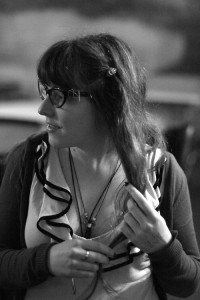
All of the comedians I spoke with over the weekend told me that entertainment was their number one goal – not social justice. But the fact that they were doing social justice work was, to me, clear as day.
When telling me about her weekly show It’s gonna be okay, Portland comic Barbara Holm said she is careful to feature only comedians who are socially conscious — usually feminist — in order to create an inclusive, non-gimmicky “safe space” for her audience to feel comfortable and laugh.
What’s not social justice-y about that?
As Andy had said in his email, the subtlety of comedy doesn’t make its impact any less powerful.
“It’s just not overt,” he wrote. “A great comic can present you with a new idea without making you feel like you’re being preached to, they can make you laugh, and then the next day you’re still thinking about the unique little kernel of insight behind the bit that had you roaring the night before.”
Photo of Baron Vaughn above taken from Troy Conrad’s video, “Faces of the 2014 Bridgetown Comedy Festival.”

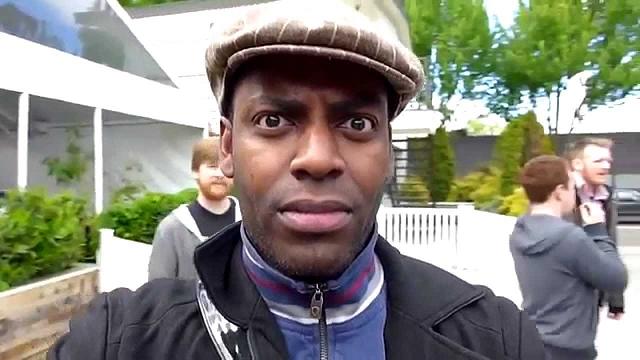
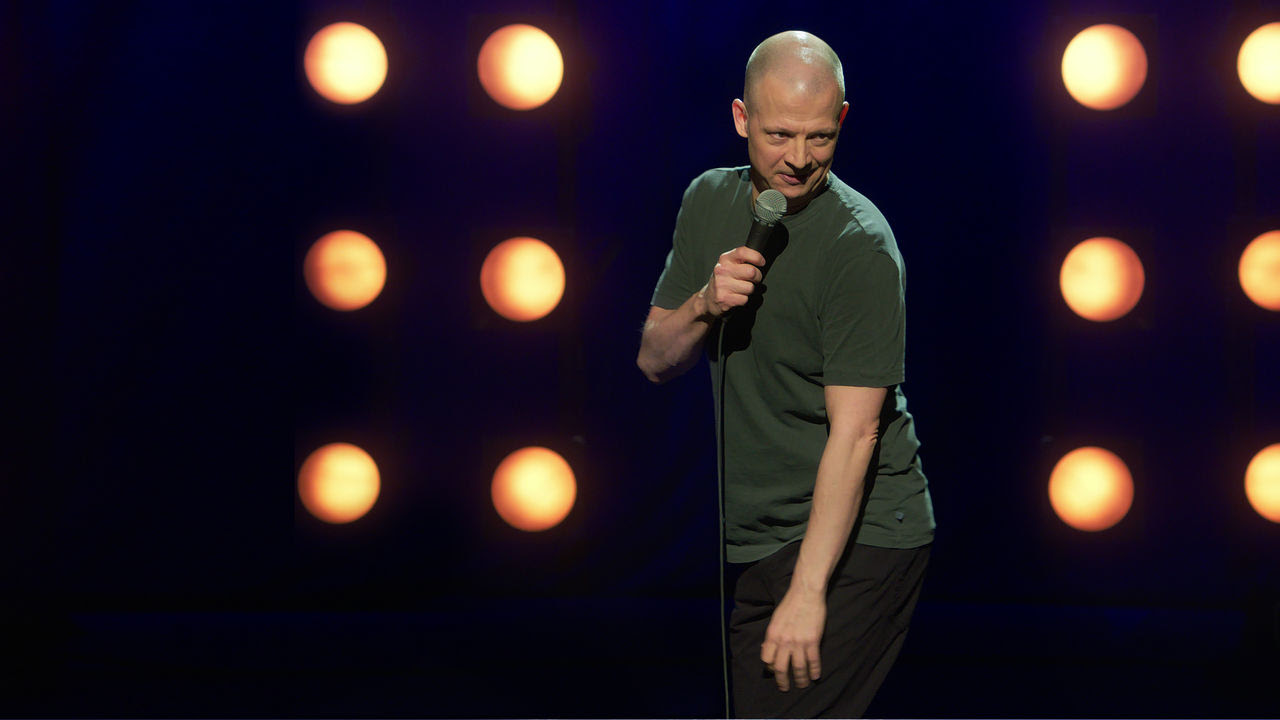
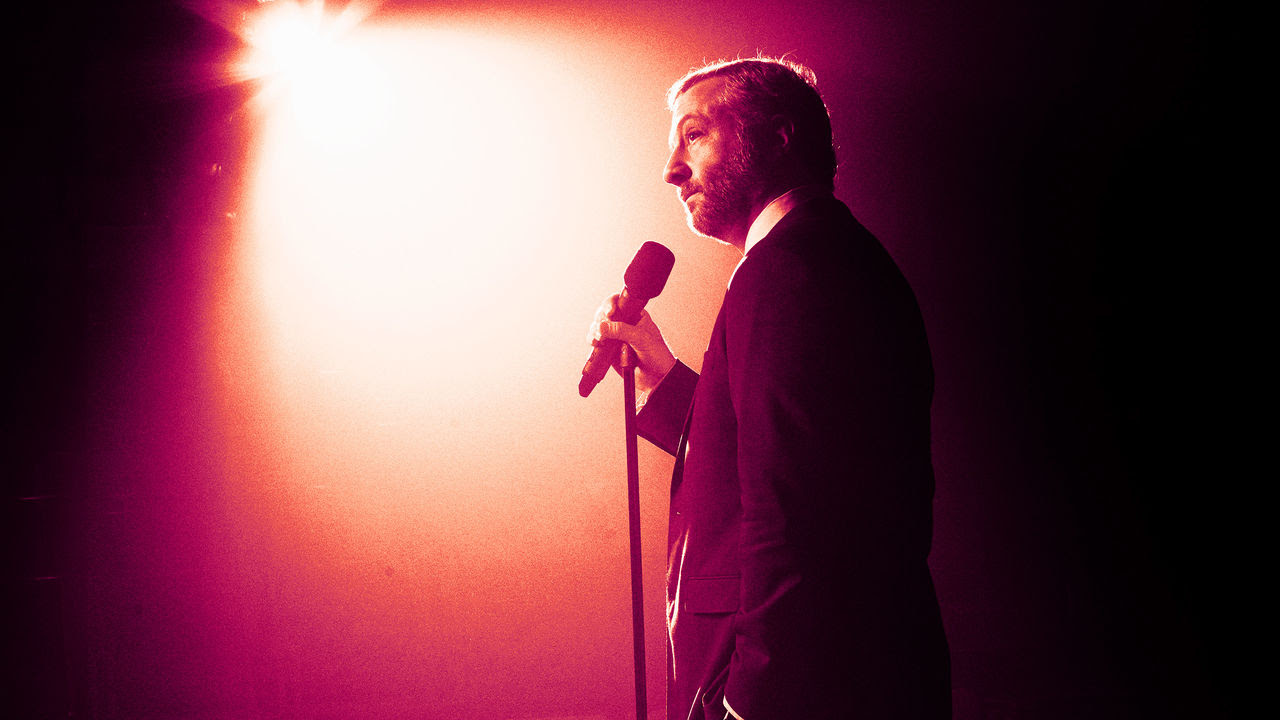
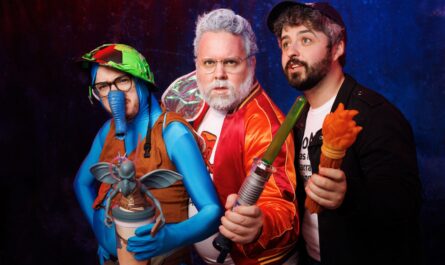
One thought on “A Bridgetown to Social Justice”
Comments are closed.